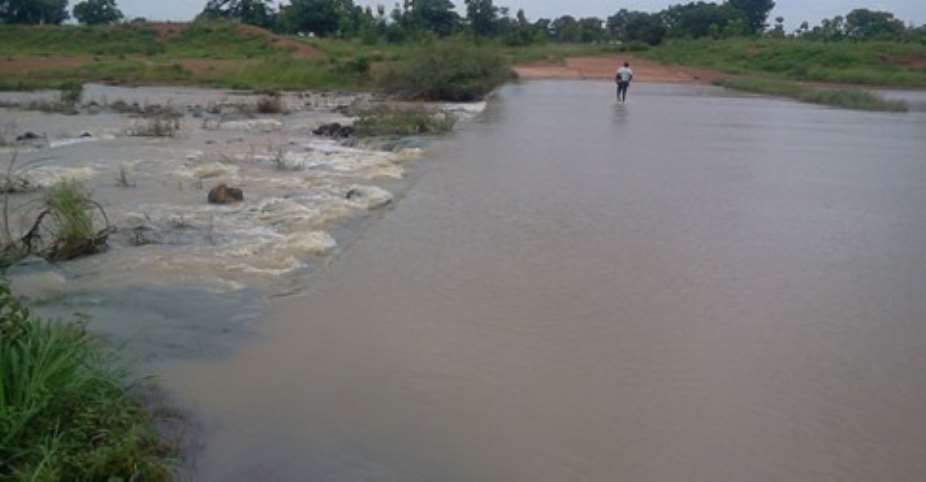Ghana is looking at its capacity needs in meeting the implementation requirements of one of the key strategies in mitigating the adverse effects of climate change.
A stakeholder workshop is ongoing in Kumasi to assess opportunities and challenges for the country to tap into the future of the REDD+ mechanism.
Nearly 20% of global greenhouse gas emissions are as a result of deforestation and forest degradation, through agricultural expansion, infrastructure development, destructive logging and fires.
It is however estimated that 25% reduction in annual global deforestation rates could be achieved by 2015 if adequate financing is made available for results-based incentives and capacity building.
The Reducing Emissions from Deforestation and Forest Degradation (REDD) is an effort to create a financial value for the carbon stored in forests.
Country Level Focal Project Person, Prof. Samuel K. Oppong, says climate change “brings in its wake a lot of difficulties… and therefore we as a nation should also have a means of preventing or reducing the effects of climate change”.
The REDD mechanism is a United Nations collaborative initiative which offers incentives for developing countries to reduce emissions from forested lands and invest in low-carbon paths to sustainable development.
The “REDD+” includes the role of conservation, sustainable management of forests and enhancement of forest carbon stocks.
It is predicted that financial flows for greenhouse gas emission reductions from REDD+ could reach up to US$30 billion a year.
According to Prof. Oppong, Ghana stands to gain from the REDD+ process because “we'll be getting some financial support to expand things that we have already been doing” in areas of plantation development and changing farming systems which “are quite expensive for us”.
This significant flow of funds from the developed to developing countries could reward a meaningful reduction of carbon emissions and could also support new, pro-poor development, help conserve biodiversity and secure vital ecosystem services.
To benefit however, Ghana needs to demonstrate sufficient technical, institutional, societal and economic capacity for the programme implementation.
The country level workshop is deliberating on the current national capacity level identified and reviewed for REDD+ implementation.
It is organized by the African Network for Agriculture, Agroforestry and Natural Resources Education (ANAFE), African Forest Forum (AFF) and the World Agroforestry Centre (ICRAF), with financial support from the United Nations Environmental Programme (UNEP).
Story by Kofi Adu Domfeh/Luv Fm/Ghana





 MASLOC former boss sentenced to 10 years in prison with hard labour
MASLOC former boss sentenced to 10 years in prison with hard labour
 Convert National Cathedral site to tourist centre — Spio-Garbrah to govt
Convert National Cathedral site to tourist centre — Spio-Garbrah to govt
 2024 election: Don’t be scared; we're ready to maintain law and order – Dampare ...
2024 election: Don’t be scared; we're ready to maintain law and order – Dampare ...
 NDC to officially outdoor Prof Jane Naana as 2024 running mate on April 24
NDC to officially outdoor Prof Jane Naana as 2024 running mate on April 24
 ECG board members slapped GHS5.8 million fine by PURC for failing to alert publi...
ECG board members slapped GHS5.8 million fine by PURC for failing to alert publi...
 I never left NPP, they 'sacked' me for attending Alan's programme; even a $100mi...
I never left NPP, they 'sacked' me for attending Alan's programme; even a $100mi...
 Fuel prices go up today
Fuel prices go up today
 Anti-gay bill: Your stance serves no purpose; either you actively advocate for t...
Anti-gay bill: Your stance serves no purpose; either you actively advocate for t...
 Tension brews as NPP Seattle clashes with national leadership over parallel chap...
Tension brews as NPP Seattle clashes with national leadership over parallel chap...
 Anti-gay bill: You've done nothing in Ghana to prove you're against LGBTQ+; ther...
Anti-gay bill: You've done nothing in Ghana to prove you're against LGBTQ+; ther...
